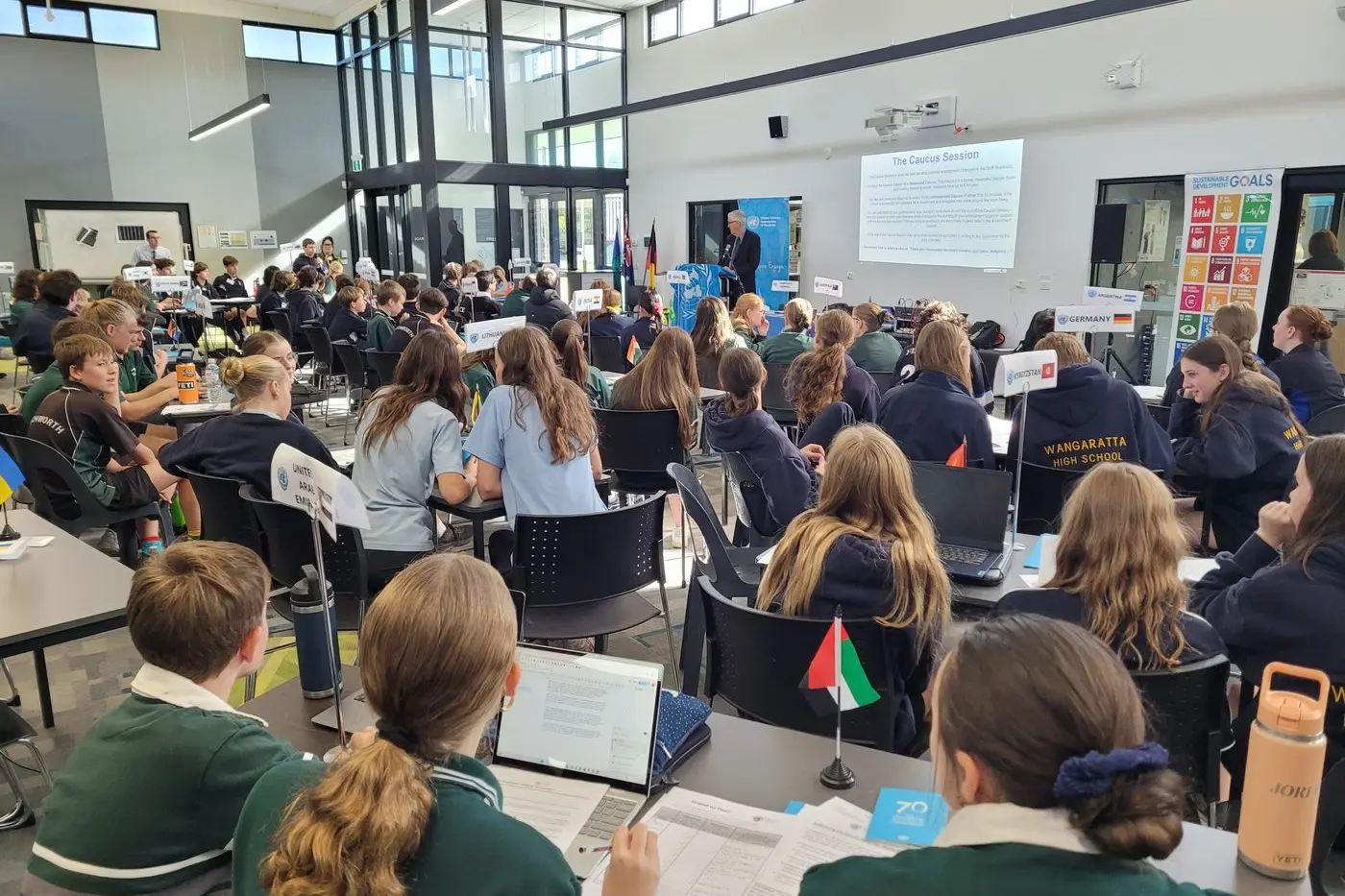PHOTO
STEPPING into shoes of United Nation’s (UN) ambassadors in a simulated session has been a valuable learning experience for high school students within the region.
Hosted by Beechworth Secondary College (BSC), the United Nations Association of Australia (UNAA) Victoria Division ran the Model UN day-long event at the school on Tuesday 6 May headed by board member and RMIT adjunct professor Ian Howie.
Professor Howie has a 30-year background in international development having worked as a career official with the United Nations.
Among its activities, the UNAA Victoria Global Education program runs a series of events designed to engage the community in the work and values of the UN with this year’s topic of space chosen by the schools.
“I think it's wonderful for the United Nations Association to be here in Beechworth with schools from the North East coming together to debate a critically important issue of space research and sustainable development,” Professor Howie said.
He said students spoke about a range of key issues, among them militarisation of outer space as opposed to using outer space for peaceful purposes in their opening statements.
Others included climate change, outer space pollution and mining on the moon.
“They debated about going ahead privately or by governments, and gave us a history lesson when the country they represented joined the United Nations,” Professor Howie said.
The professor said the UN Model broadened student knowledge about countries and the work of the United Nations as well as its importance during troubled times.
BSC humanities and leadership teacher Alastair Jack said students from across junior and senior years took part voluntarily preparing for the topic for around six weeks with 28 countries represented.
Year 10 students Alistair Merrit and Eva Doyle were among school colleagues and students from five other schools around the region, with more than 100 people taking part.
Eva, in a team representing Sweden, said the UN Model educated students more about what’s going on in the world.
“We get to learn about other countries,” she said.
Alistair, in a team representing Mexico, said students had the chance to meet other students from different schools too.
“Learning about space and International space laws and how they effect different countries is quite interesting,” he said.
Mr Jack said learning about the global community and international politics was a crucial part of education.
“It’s also about learning how to address other human beings in a sophisticated way, and to learn about international institutions like the UN with its support for the human race and for our planet in times of conflict and international catastrophe such as global warming,” he said.
“It's crucial because much of our education system is set up for giving extracurricular opportunities to mix with students from other schools.
“It's an opportunity for students to build connections and to have their day to be celebrated and to be acknowledged for their talents."
Mr Jack said the school chose space as the topic covered many different issues among them conflict relating to space with weapons, economic inequality and access to space, and gender equality such as the number female astronauts sent into space by countries
Humanities teacher Finn Pedersen said the UN model also offered a platform for students to gain public speaking and debating skills.
“Kids from all across our region learned the fundamental skills of how to persuade others, how to listen to others around a meaningful topic and the meaningful platform of the United Nations Model,” he said.





